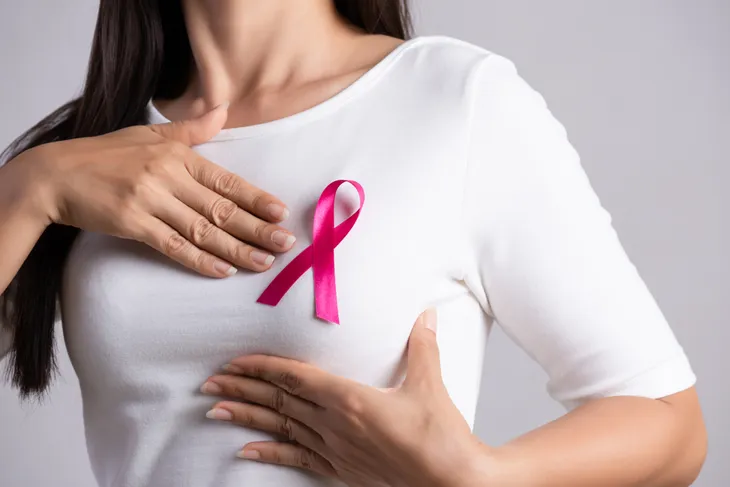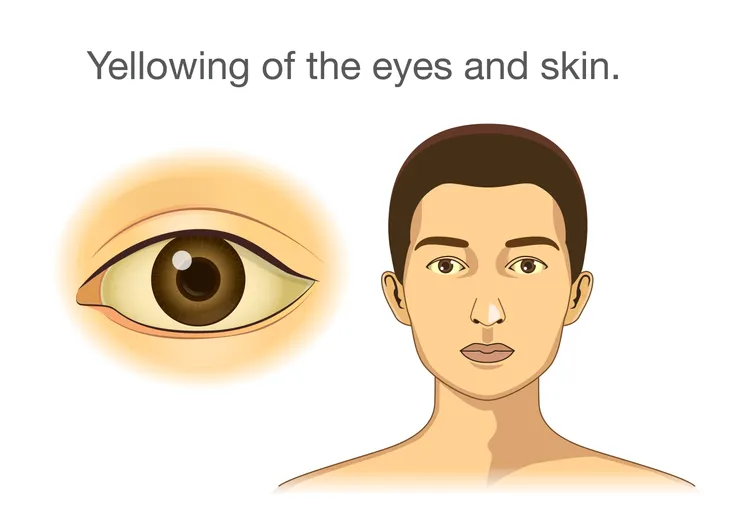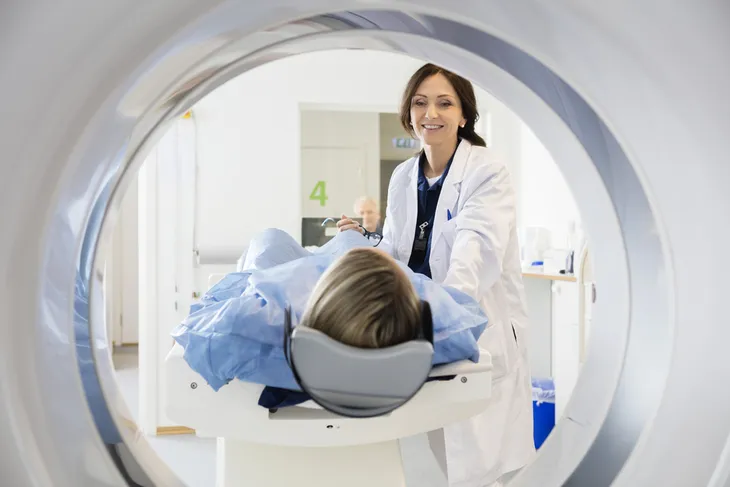A cancer diagnosis can be scary. Add in terms like “metastatic” and it can be even more confusing and overwhelming. In short, metastatic breast cancer is the most advanced stage of breast cancer. It’s diagnosed when cancer cells spread from your breast to other parts of the body. But there’s a lot more to know about it too! Given how the symptoms of metastatic breast cancer can often be misdiagnosed, it’s helpful to research this information online before consulting a doctor.
What Is Metastatic Breast Cancer?
First, it’s important to explain how breast cancer develops, which occurs when abnormal cells in your breast begin to divide uncontrollably. When your breast cancer is metastatic, it means the cancer cells have spread from your breast to other areas of your body. Metastatic breast cancer is “the most advanced stage of breast cancer,” explains the Cleveland Clinic.
Common places cancer cells tend to travel to include your bones, lungs, liver, and brain. Even though cancer can spread to these other areas, the source says it’s still considered breast cancer because “the cancer cells are still breast cancer cells.”
The Difference Between Stage 4 Breast Cancer and Metastatic Breast Cancer
You may hear metastatic breast cancer and stage 4 breast cancer terms used interchangeably and that’s because the two terms essentially mean the same thing, says Cleveland Clinic. When breast cancer is classified as stage 4, it means that cancer has spread (or metastasized) to other areas of the body.
The Cleveland Clinic says roughly 6-percent of women and 9-percent of men have metastatic breast cancer when they’re first diagnosed, this is known as de novo metastatic breast cancer. However, more commonly, metastatic breast cancer is diagnosed after the original breast cancer diagnosis and treatment, it comes back and spreads. This is known as distance recurrence.
Symptoms of Metastatic Breast Cancer
Early signs of breast cancer include skin changes, a lump, or nipple discharge, however, if the cancer is more advanced you may experience other, more intense symptoms. Healthline says some of the common symptoms of metastatic breast cancer include:
- shortness of breath
- fatigue
- new (unexplained) pain
- changes in your breast shape
- new headaches
- change in appetite
- digestion problems
- weight loss
If you develop any of these symptoms it doesn’t necessarily mean you have metastatic breast cancer, however, it’s important to talk to your doctor right away to find out the cause.
Bone Metastasis
When breast cancer travels to other areas of the body you can develop other symptoms, depending on its location. For example, if your breast cancer spreads to your bones you may experience bone pain or swelling. Breast Cancer.org says. “More than half of people who develop stage IV breast cancer have bone metastasis.”
Weakened bones are also a symptom and can be serious as it increases your risk for bone fractures. Breast cancer can spread to any bone, however, the source notes some of the most common bones affected include the spine, pelvis, ribs, and the long bones in your arms and legs.
Brain Metastasis
Metastasis in the brain is less common, affecting about 10- to 15-percent of individuals with stage four breast cancer. Breast Cancer.org explains, “For most people with metastatic breast cancer that has spread to the brain, the breast cancer has already traveled to another part of the body, such as the bones, lungs, or liver.” That said, in 17-percent of individuals with brain metastasis, breast cancer only spreads to the brain.
Furthermore, brain metastasis is more common in individuals who have aggressive subtypes of breast cancer, “such as HER2-positive or triple-negative breast cancer,” explains the source. Common signs of brain metastasis include:
- seizures
- stroke
- memory problems
- headache
- mood or personality changes
- slurred speech
- balance problems/dizziness
- blurred vision
 9nong / Shutterstock
9nong / ShutterstockLungs Metastasis
The lungs are another common location for breast cancer to metastasize. Unfortunately, Breast Cancer.org says metastasis in the lungs doesn’t often cause symptoms. Doctors may discover it after seeing a tumor on an imaging test as part of your follow-up treatment. That said, symptoms of metastasis in the lungs are still possible. Some signs may include:
- shortness of breath
- wheezing
- pain or discomfort in the lungs
- persistent cough
- coughing up mucus or blood
Some of the symptoms can be similar to a common cold or upper respiratory infection which may cause you to brush off your symptoms. However, the source says if symptoms persist for more than a week or two, contact your doctor right away. If your doctor suspects lung metastasis, they may order a computed tomography (CT) scan or positron emission tomography (PET) scan to confirm a diagnosis.
Liver Metastasis
Breast cancer can also spread to the liver, which affects about 50-percent of individuals diagnosed with metastatic breast cancer, says Breast Cancer.org. The source also notes that 5- to 12-percent of these individuals develop liver metastasis as the main site of breast cancer recurrence.
Liver metastasis doesn’t often cause symptoms, however, some possible signs to watch out for include:
- bloating
- fever
- swelling in the legs
- fatigue/weakness
- pain/discomfort in your abdomen
- a yellow tint in the skin or white of the eyes (known as jaundice)
To diagnose liver metastasis, doctors often use liver function tests and imaging tests such as CT scans, PET scans, magnetic resonance imaging (MRI), or ultrasounds.
Who’s at Risk?
The Cleveland Clinic says roughly 170, 000 individuals in the U.S. are living with metastatic breast cancer. And less than “1 in 3 women who are diagnosed with early-stage breast cancer later develop metastatic breast cancer,” says the source.
Some individuals may be at an increased risk for metastatic cancer after finishing treatment but the risk depends on various factors of cancer such as the type of cancer cells, that stage of your first diagnosis, and the treatments you received. Talk to your doctor about your risk of metastatic breast cancer.
 Shutterstock/SewCream
Shutterstock/SewCreamCauses of Metastatic Breast Cancer
In many cases, metastatic breast cancer develops because the initial treatment failed to destroy all the cancer cells, says the Cleveland Clinic. If cells remain, they can begin to grow and spread again. Then the cancer cells may “invade nearby lymph nodes or blood vessels” and travel throughout the body through your lymph vessels or blood vessels.
Once in their new location, the cancer cells may form new small tumors. Unfortunately, the source says there is nothing you can do to prevent breast cancer from metastasizing.
Diagnosis
If your doctor suspects you may have metastatic breast cancer, there are various tests they can perform to confirm a diagnosis. Some of these include:
- Imaging tests, such as MRI, CT scan, PET scan, and bone scan.
- Blood tests, such as a complete blood count and metabolic panel.
- Biopsy, which removes a small piece of tissue from the suspected area.
- Bronchoscopy, which involves a scope that looks inside your lungs.
- a “tap,” which removes fluid from the area with symptoms (such as the lungs or spinal cord area).
Treatment
Currently, there is no cure for metastatic breast cancer. Once the cancer cells spread to other areas of your body, it’s not possible to get rid of them. That said, there are treatment options available that may improve your quality of life, and extend your life expectancy.
Healthline says, treating metastatic breast cancer is typically the same as treating breast cancer in its early stages. Some treatments include surgery, radiation, chemotherapy, and hormone therapy. Your doctor may also recommend lifestyle changes to make living with your symptoms more manageable.
When to Prepare for Hospice or Palliative Care
Healthline points out that treatments are “becoming so advanced that many people can live for a long time after their diagnosis and still maintain a good quality of life.” That said, if treatment stops working, or if you choose to stop treatment due to intense side effects, your doctor may recommend that you prepare for hospice or palliative care.
The goal of hospice and palliative care is to manage your symptoms and maximize your comfort and quality of life. Your doctor may also recommend you join a breast cancer support group. Surrounding yourself with others who are going through the same situation can help you feel connected and less isolated.
Can Metastatic Breast Cancer Be Prevented?
Unfortunately, there is currently no proven way to prevent metastatic breast cancer. That said, the Cleveland Clinic says researchers are “working on treatments that may prevent cancer from spreading and coming back (recurring).”
While you may not be able to prevent it, there are steps you can take that may reduce your risk of getting breast cancer. For starters, performing regular self-exams, and scheduling regular screenings with your doctor are important steps for early diagnosis. The earlier breast cancer is diagnosed, the more effective treatment can be, says the source. Talk to your doctor to find out when you should start having regular breast exams.














